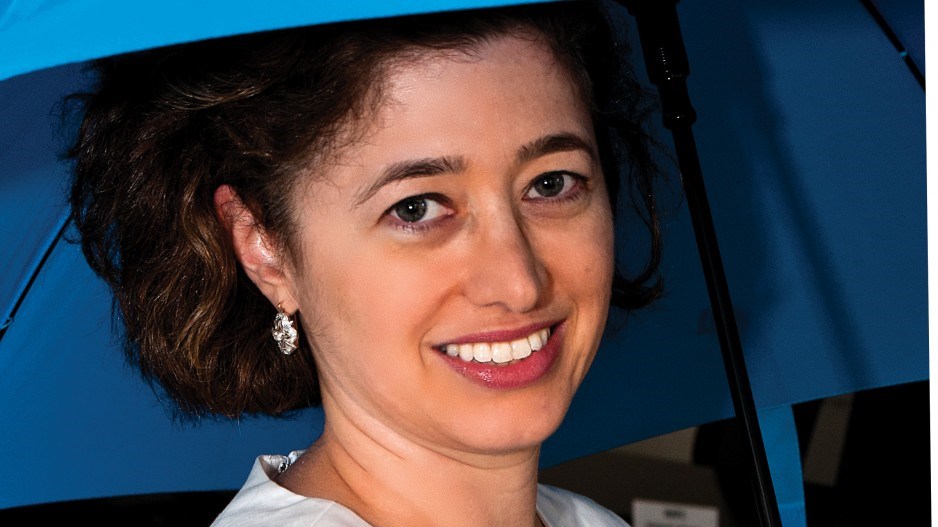“Don’t be afraid to change the status quo.”
That is how Alena Levitz describes the most important lesson she has learned during her time so far at the BC Unclaimed Property Society (BCUPS).
Levitz’s disregard for business as usual is highlighted by the unusual job she holds.
As BCUPS executive director, it’s her task to persuade companies and agencies to hand over excess money from dormant accounts, unclaimed wages and other sources so that it may be restored to its rightful owners. Since 2011 Levitz has successfully collected $31 million from B.C. organizations.
Anyone who has ever had a transaction in British Columbia could be entitled to unclaimed funds. An investment someone lost track of, forgotten insurance payments or an estate with no will are all sources of unclaimed money within businesses or organizations. Organizations have a legal responsibility to make an effort to find and return the money to its rightful owner. While some large organizations choose to do it themselves, many hand over the responsibility to Levitz and her team. BCUPS has an online database (https://unclaimedpropertybc.ca/searchp/search/) that people can use to check if they’re owed unclaimed funds.
British Columbia is one of three provinces that have a provincial body responsible for collecting and returning funds to their rightful owners. There is no statue of limitations on the collected money, which remains on BCUPS’s books until the rightful owner or a next of kin collects it. (Levitz notes there is one account on the BCUPS books that goes as far back as the 1800s.) This is unlike other jurisdictions where the money can be claimed as income by the state.
The largest claim that Levitz ever paid out was $350,000. The money was from an estate that didn’t have a will.
In 2011 BCUPS was much smaller, both in terms of size and the value of the accounts it held. Levitz came in to shake things up. With a background in law, she was able to clearly assess the organization’s legal position and foresaw issues that might arise.
Levitz helped to revamp BCUPS by making operational adjustments and changing how the company is viewed.
The former lawyer turned business leader continues to relish the opportunity to create unique solutions to challenges that arise from an atypical work environment.
“The thing I enjoy the most about my job is it really lets me practise at the intersection of law and business, and I get to innovate.”
Through creative problem solving, Levitz was able to dramatically improve BCUPS’s efficiency. Before Levitz joined the team, BCUPS collected $5 million in eight years. So far, she has been able to more than double the total funds paid out by BCUPS in two-thirds the time.
When Levitz first joined BCUPS, she planned to bring the not-for-profit organization into the 21st century with a complete digital rebranding that included a new visual identity. Levitz also prioritized online outreach by developing a business-focused social media presence.
“One of our campaigns was so successful we received over 14,000 emails and calls to our office within a few days – a record for BCUPS,” she said. “Prior to my arrival we would typically receive between 1,500 to 2,000 general inquiries per year,” said Levitz.
Levitz changed the strategic direction of the organization by contracting experts with specific business knowledge in areas like marketing, IT and business analytics. She also implemented a sophisticated case-management computer system. This enabled the organization to track information in real time. Replacing an outdated legacy computer system and investing in new software and training allowed the organization to increase efficiency, a necessary feat for an office comprising only four people. Her own natural inquisitiveness has helped too, helping her see each file as a new puzzle and driving her to often spend great lengths of time in a quest to solve the enigma of the missing payee.
Working in a small and unusual industry has provided Levitz with many learning opportunities. The most important of which, she said, is follow your instincts.
“I have learned from experience to always trust your gut,” she said. “I’ve hired people who look fantastic on paper and I just had a slight suspicion that they may not be a good fit. And every time I think ‘Oh, you should have gone with your gut.’”
Working for a small organization like BCUPS, Levitz has learned the value of people. Not only does she have to make the most out of the talent she has employed, she also needs to know their limits. By contracting out jobs that are out of the realm of her team’s expertise, she is able to effectively manage employee time while ensuring that each task is treated with the needed expertise.
“The ability to hire excellent specialized consulting services allows a smaller business like ours in a not-for-profit setting to really punch above its weight,” she said.




